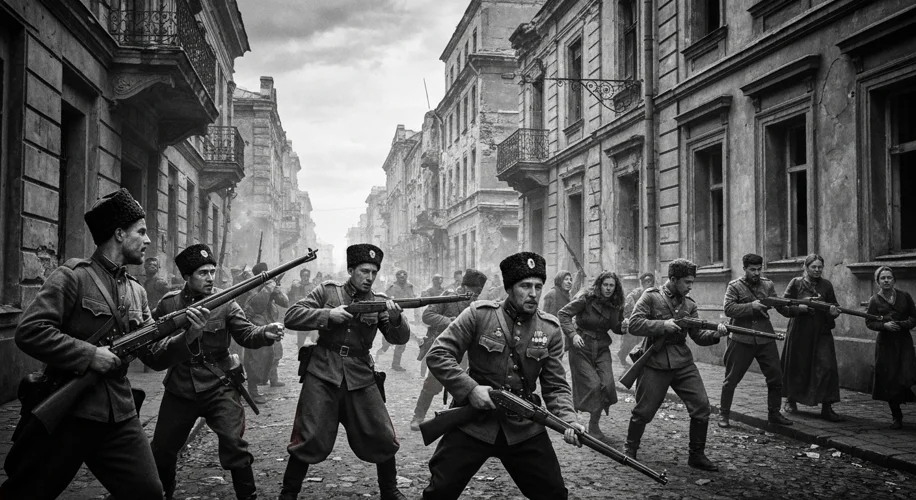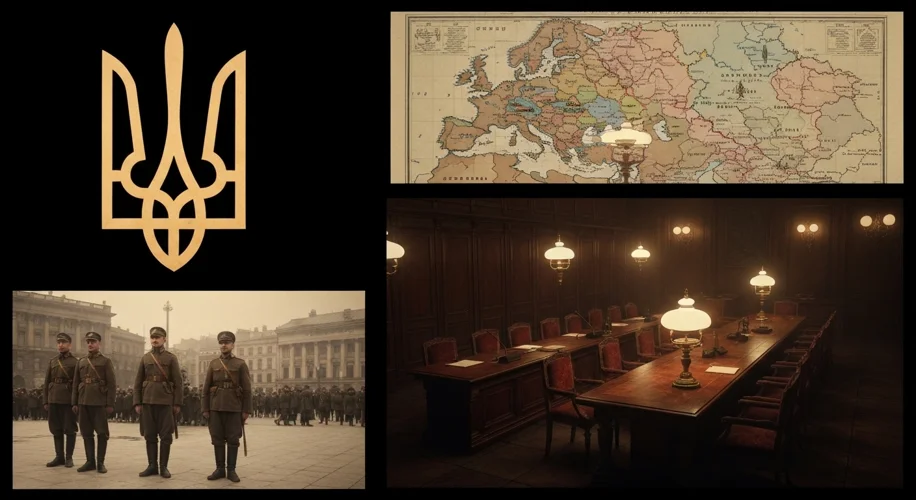The chill of the late autumn wind whipped through Kyiv in 1917, carrying with it not just the scent of damp earth but the fervent, almost palpable, scent of a nation yearning to breathe free. For centuries, Ukraine had been a land caught between empires, its people a pawn in the grand, often brutal, games of its powerful neighbors. But as the old world order fractured under the weight of the Great War and the fires of revolution, a new dawn, however fragile, seemed to break.
From the ashes of tsarist Russia, the Ukrainian People’s Republic (UNR) flickered into existence. It was an audacious declaration, a bold assertion of identity for a people whose language and culture had been suppressed for so long. The Central Rada, or Council, formed the nucleus of this nascent state, a body composed of socialists, nationalists, and intellectuals, all united by a singular, burning ambition: independence.
But the path to statehood was a minefield. Imagine the scene: a young nation, barely out of its swaddling clothes, surrounded by wolves. To the north, the Bolshevik revolution had unleashed a torrent of communist ideology, promising a new world order that viewed Ukraine’s aspirations with suspicion, if not outright hostility. General Anton Denikin’s White Russian forces, remnants of the old imperial army, also cast a long shadow, seeking to restore a unified Russia – a prospect that would erase Ukraine’s hard-won autonomy.

The UNR, under leaders like Mykhailo Hrushevsky and Symon Petliura, found itself in a desperate struggle for survival. It was a multi-front war against forces that were often better equipped and more experienced. The UNR’s own army, composed of dedicated but often ill-equipped volunteers and conscripts, fought valiantly. They were the embodiment of a nation’s will, but will alone could not always overcome overwhelming odds. The early days were marked by a flurry of activity: declarations of sovereignty, attempts to establish governance, and constant diplomatic maneuvering to gain international recognition. Yet, each step forward was met with a thrust backward.
The brief period of the UNR was a whirlwind of shifting alliances and desperate measures. At times, it sought aid from Germany and Austria-Hungary, a pragmatic but ultimately problematic alliance born of necessity. The Treaty of Brest-Litovsk in 1918, while momentarily recognizing Ukraine’s independence, also saw German troops occupy parts of the country, a bitter reminder of the precariousness of their sovereignty. When the Central Powers collapsed, the UNR was left vulnerable once more.
The internal political landscape was equally fraught. The UNR was a coalition government, and like many such endeavors, it wrestled with ideological differences and power struggles. While the desire for independence was a unifying force, the path to achieving it, and the nature of the future Ukrainian state, led to disagreements. This internal friction, though understandable in such tumultuous times, often hampered their ability to present a united front against external threats.
As the dust settled from the Great War and the Russian Civil War, the UNR’s fate was sealed. The Bolsheviks, under the Red Army, gradually gained the upper hand. Despite fierce resistance, the UNR government was forced into exile in late 1920. What remained of Ukraine was eventually absorbed into the burgeoning Soviet Union, becoming the Ukrainian Soviet Socialist Republic.
The story of the Ukrainian People’s Republic is a poignant, often tragic, chapter in the long struggle for Ukrainian statehood. It was a testament to the enduring spirit of a people, a fleeting but powerful bid for self-determination against overwhelming historical forces. The ideals and aspirations of the UNR, though suppressed, did not vanish. They lingered, a persistent echo in the hearts of Ukrainians, fueling future generations’ own quests for independence, a dream that would, decades later, finally find its realization in a very different world. The memory of the UNR serves as a powerful reminder that the fight for national identity, even when seemingly lost, can endure through the darkest of times.

